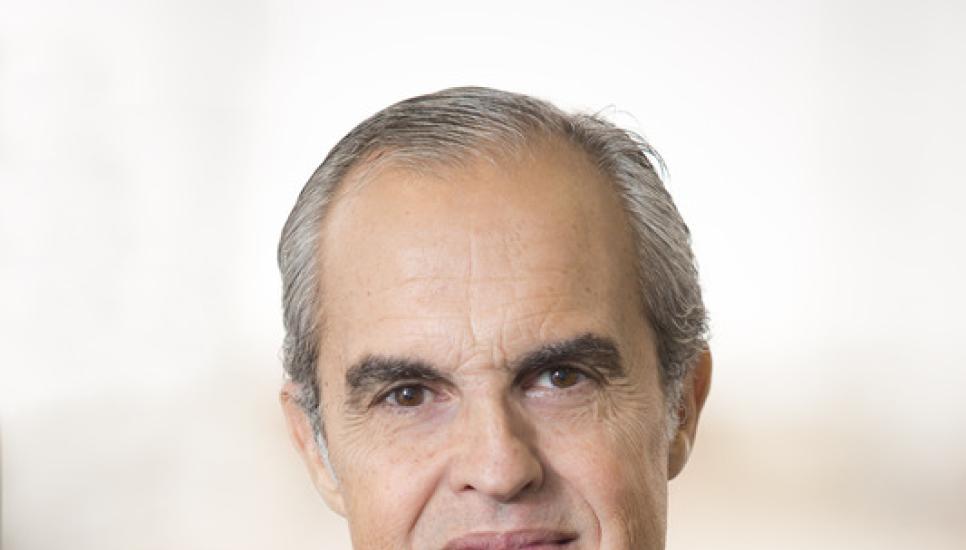Managing wealth as a business: A family office'to be or not to be?

Does it make sense to professionalise the management of my wealth (or that of my family), treating it in a manner comparable to how I treat my company or other businesses? In other words, should we create a family office?
More and more business-owning families are asking this question as a consequence of the problems and upheavals that affected family companies after the crisis of 2008. The answer to this question is not as simple as it appears. In my opinion, it requires an in-depth analysis of the reality and circumstances of each case—especially if the intention is to do things well with a realistic perspective on the medium-and long-term to achievability of sustainable family wealth. If this is not the intention, as the French painter, Francis Picabia, said: “It is better to do nothing than anything.”
It is necessary to ask specific questions in advance, about the requirements of the business-owning family—what are the objectives, the areas to develop for the scope of action, localisation, and reserve requirements? Other good questions include: What material and human resources will be needed for the family office? How will it be financed? Will it be created alone or with the help of third parties?
 As we know, each family enterprise has its peculiarities and requires a personalised approach. There are a variety of objectives for creating a family office: having a platform of services for the family, enhancing family cohesion among generations, stimulating the entrepreneurial spirit of the youngest members, or structuring the family protocol, among many others.
As we know, each family enterprise has its peculiarities and requires a personalised approach. There are a variety of objectives for creating a family office: having a platform of services for the family, enhancing family cohesion among generations, stimulating the entrepreneurial spirit of the youngest members, or structuring the family protocol, among many others.
For these reasons, an important preliminary step is to clarify the objectives for the family office, given that these objectives will determine its mission, which generally allows for the alignment of family member interests as well as clarifying the functions that the family office will perform. The most common function is to perform services of an economic nature (wealth management), but there are companies that manage their family office in a more integral and strategic manner, including business planning, legal and fiscal counselling, education and training of family members, and philanthropic activity or social responsibility. In some cases, solutions to conflicts or personal problems are included.
Nonetheless, the essential point on which family business sustainability operates is the creation of a strategic family plan. I often use the fact that a successful business owner, who wants the company to grow, does not hesitate to make a strategic plan, as a way to suggest that this also is the first step in preserving and creating wealth.
The strategic family plan, if done well, must be constructed from a global, 360-degree perspective and inevitably lead to a diversified investment portfolio (real estate, business, private equity, and financial), which is to say global and strategic asset allocation. Let us not forget that, while there are those that think differently, the decision to invest is not a simple one. In the words of Stuart Lucas: “Wealth without values is just money!”
 Before investing, we must have a plan that truly distributes money according to the interests, needs, and values of the family. There are no two family offices that invest the same way for the mere fact that no two families are alike. However, it is also an inarguable fact that all family offices, just as all business-owning families, must have a long-term objective and a plan to achieve it. In the words of Roman philosopher, Lucius Annaeus Seneca, in the 4th century BC: “If a man knows not what harbour he seeks, any wind is the right wind.”
Before investing, we must have a plan that truly distributes money according to the interests, needs, and values of the family. There are no two family offices that invest the same way for the mere fact that no two families are alike. However, it is also an inarguable fact that all family offices, just as all business-owning families, must have a long-term objective and a plan to achieve it. In the words of Roman philosopher, Lucius Annaeus Seneca, in the 4th century BC: “If a man knows not what harbour he seeks, any wind is the right wind.”
A strategic family plan is nothing more than the task of defining the current state of the business-owning family, a task on which the medium-and long-term objectives are established and constructing the process for achieving them. In every strategic family plan a strategic global portfolio for family investments must be constructed. There are profitability objectives and risk metrics that allow monitoring and managing the investment plan, making wealth work in accordance with the desires and interests of the family.
There is, however, another fundamental element for all of this to work: the team, and with it, the investments that are going to be made in material and human resources to effectively and efficiently meet the needs of the family.
The alternatives that arise are basically: (a) have a structure or “family office” with the hiring of an exclusive management team for the family, which will be responsible for managing the wealth like a distinct business unit; or, (b) replicate the structure of a “multi family office” with a professional team, which will assume all the functions of the family office as its own; lastly, (c) create a small structure, “mixed solution,” that may be sustained in a “multi family office.” A multi family office is a business that, by employing a multidisciplinary team (specialists in taxes, law, investments, risk management, administration, and systems), allows for the operation of the family office of different families with independence and a guarantee of proven experience.
 The creation of a family office is a strategic decision that requires the establishment of clear objectives with a strategic plan that reflects the reality of the family from all angles. Only with a firm commitment from all family members, who consider as intangible values the alignment of interests, greater family trust, greater professionalisation, and an improvement of familial relationships, will the desired result be obtained. As Benjamin Franklin once said: “Peace and harmony are the greatest wealth of the family.”
The creation of a family office is a strategic decision that requires the establishment of clear objectives with a strategic plan that reflects the reality of the family from all angles. Only with a firm commitment from all family members, who consider as intangible values the alignment of interests, greater family trust, greater professionalisation, and an improvement of familial relationships, will the desired result be obtained. As Benjamin Franklin once said: “Peace and harmony are the greatest wealth of the family.”
In conclusion, I offer 10 questions that serve as a guide for those families that want to begin this process:
1. Where are we?
2. Where are we going?
3. With whom are we going (member of the family)?
4. What function/role does each family member perform?
5. What needs must be met?
6. What present and future wealth do we have?
7. How does this wealth need to operate in order to meet the needs of the family?
8. In what environment and situations will we manage the wealth?
9. How do we professionalize the management of this wealth?
10. How do we submit the wealth (including the business) to a process of risk management to allow for rational strategic decision making over time?
Reprinted with permission from FFI Practitioner, © Family Firm Institute, Inc.






